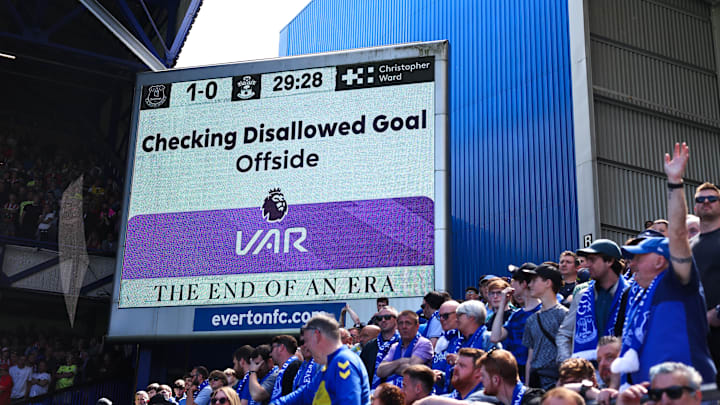The SunSport has analysed over 380 contentious decisions by VAR and has updated the Premier League table as a result, with original on-field decisions standing had they not been overturned after intervention by the Stockley Park video booth.
Over the course of the season, VAR intervention resulted in 12 goals being awarded and 25 penalties given, 21 of which were successfully converted. In contrast, 48 goals and 11 penalties were disallowed following VAR reviews.
This season, the biggest beneficiaries of VAR have been Newcastle United, West Ham, and Aston Villa. Eddie Howe’s side, in particular, benefited from 13 decisions going in their favour, with only five going against them.
Bournemouth, on the other hand, were among the unluckiest teams. In the VAR-adjusted table, they made the biggest leap in position, climbing to an impressive sixth place, a remarkable improvement of three spots and eight additional points compared to their actual standing with VAR in place.
While it's true that these point differences are ultimately subjective, and match outcomes don't always hinge solely on VAR decisions, it's still valuable to consider whether your club’s position might have improved or worsened without it. This insight can be a key part of the ongoing debate around the introduction of VAR into the game.
Everton's misfortune
The misfortune at Everton from the video referee lies with the club five points worse off, missing out on a potential 11th position that could tie them on points with Brentford in tenth, effectively a top-half position.
The team found themselves at the center of VAR controversy as early as the opening game of the season, a 3-0 defeat to Brighton, when a contentious challenge by Lewis Dunk on Dominic Calvert-Lewin went unpunished. While the decision may not have altered the final result, it could have softened the blow of an already painful loss.
The penalty controversies didn’t stop there. The striker was again unfortunate in the goalless draw against Newcastle, when a potential foul by Dan Burn was not overturned into a penalty. Dwight McNeil was brought down in the box away to Ipswich, and Ashley Young appeared to be fouled by two Manchester United players in the lead-up to a last-minute winner, all decisions that arguably should have gone in Everton’s favour and could have earned the team valuable points.
That said, Everton weren’t without their own slice of VAR fortune. No penalty was awarded for James Tarkowski’s challenge on Jean-Philippe Mateta in the win over Crystal Palace, and Jordan Pickford’s collision with Malo Gusto looked like a clear penalty.
Perhaps the most glaring oversight came in the Merseyside derby, when Tarkowski's reckless tackle on Alexis Mac Allister somehow went unpunished, a decision that still stands out. The tackle described as an 'leg breaker' was reflected on by PGMOL chief, Howard Webb, in the days following the game, with the former referee admitting the foul should have been reviewed and the captain sent for an early shower.
Whatever the future holds for VAR, these decisions tend to balance out over the course of a season. Hopefully, next year, Everton will benefit from a few more favourable calls from Stockley Park.
